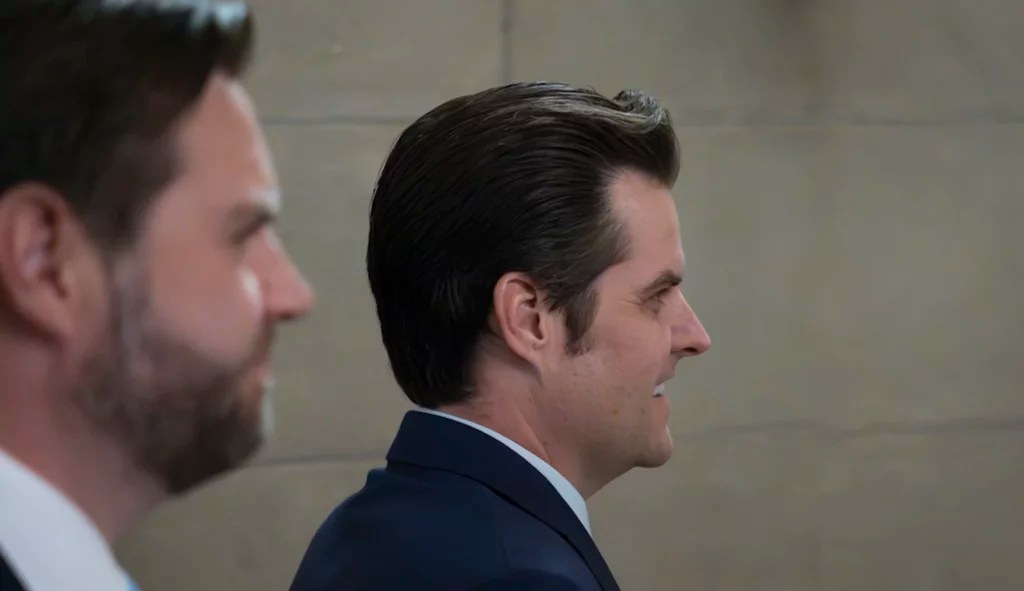GOP turmoil sparks fear of government shutdown, defense budget pulled from House floor.
Unless top-line caps are fixed onto the 12 annual federal appropriations bills that constitute each fiscal year’s federal budget, a bloc of House conservatives will reject any and all proposed spending measures—including the nation’s must-pass defense budget.
That bottom-line vow from several key Republicans prompted House Speaker Kevin McCarthy (R-Calif.) to pull a procedural vote on the proposed $886.3 billion fiscal year 2024 defense budget from a planned afternoon floor vote on Sept. 13.
The docket duck confirms after stagnating without consensus during a six-week summer recess, the brewing House impasse between Mr. McCarthy and the 40-member House Freedom Caucus has now metastasized into a stewing stalemate that could shut down the federal government after Oct. 1 without a continuing resolution (CR) that many conservatives have vowed to also stymie.
Related Stories
The scheduled rule-change vote was to allow 184 newly proposed amendments, adopted the night before by the House Rules Committee, to be debated and added onto the House version of the National Defense Authorization Act (NDAA), or annual defense budget.
With a 222–212 GOP House advantage and Democrats set to vote against a defense budget larded with controversial “culture war” amendments that are certain to be shot down in the Democrat-controlled Senate—President Joe Biden has already vowed to veto them—there was no room for party defectors if the House NDAA was to advance to chamber conferencing and a showdown with the Senate over federal spending.
But first showdown first.
NDAA Vote a Late Scratch
The NDAA vote was scheduled for a 1:30 p.m. vote, but was removed late morning after a closed-door House GOP conference meeting ended without consensus in resolving House Freedom Caucus objections with concerns raised by moderates in swing districts about the potential political ramifications of a federal shutdown.
Rather than put the NDAA up for a vote, Mr. McCarthy removed it, putting the budget process in a stand-off without, at least by afternoon, any resolution.
“They’re just working on it,” Mr. McCarthy told reporters, but said no more.
Several House Freedom Caucus members had plenty to say, however, and their comments may have convinced Mr. McCarthy to make the anticipated vote and the debate it would engender a late scratch.
Reps. Dan Bishop (R-N.C.), Bob Good (R-Va.), and Ralph Norman (R-S.C.) were among GOP conservatives who said they would vote against the whole NDAA—against any and all of the 12 spending bills—until they see top-lines in fiscal year 2024 appropriations written in accountable ink.
House Freedom Caucus and Rules Committee member Rep. Ralph Norman (R-S.C.) told reporters he was a “no” on the procedural votes to advance the budget for the same reason he voted against the amendment package adopted by the House Rules Committee the night before, even though he sponsored several of newly adopted amendments.
Mr. McCarthy, he said, has not provided top-lines, or caps, on how much money each of those 12 fiscal year 2024 appropriations “authorizations” could ultimate authorize.
“We need to know what the top-line levels are going to be across-the-board and know what the plan is going to be to negotiate with the Senate and how we get these done,” agreed Rep. Chip Roy (R-Texas).
Devil in Debt-Deal Details
Under terms of the debt-ceiling deal negotiated last spring between Mr. McCarthy and President Joe Biden, and endorsed in bills passed by the House on May 31 and the Senate on June 1, the NDAA must be adopted before the new fiscal year begins on Oct. 1. Failure to do so would induce a 1 percent across-the-board spending trim.
The debt-ceiling deal suspends the nation’s $31.4 trillion borrowing limit until January 2025 in exchange for caps on federal discretionary spending over the next two years.
Under the deal, to provide the 3.3 increase in defense spending, discretionary non-defense spending in the $6.9 trillion fiscal year 2024 federal budget is capped at $703.7 billion and then limited to no more than 1 percent increase in fiscal year 2025.
The House Freedom Caucus is demanding deep spending cuts outside defense, primarily in social program spending. Among recommendations is trimming at least $120 billion additional federal discretionary with proposed 15–30 percent cuts the for the departments of Agriculture, Commerce, Education, Health and Human Services, Justice, Interior, and Labor.
“We all concede defense is going to continue to rise,” and there are few objections to the spending increases outlined in the NDAA, Mr. Bishop told reporters.
“But the exchange for that has to be we have to make cuts in other areas of the bureaucracy,” he continued. “Once the entire package is ready and I can see it and I can see that everybody’s prepared to move it, then I’m prepared to move individual bills.”
More ‘Culture War’ Amendments
The actual defense budget, although itself a massive cauldron of questions and controversies, factors little into the inner-party dispute among GOP House factions.
“Nobody’s objecting to what’s in the bill,” House Rules Committee Chair Tom Cole (R-Okla.) said. “Everybody’s trying to leverage the bill for something now.”
The proposed rule-change itself contains a bill that would prohibit states from banning the sale of cars with gas-combustible engines and dozens of amendments atop those already in the House NDAA targeting Pentagon diversity, equity, and inclusion (DEI) programs, and funding for Ukraine in its fight against Russia’s invasion.
Mr. Norman’s proposed amendment seeks to block funding for all Pentagon DEI offices. Money for Department of Defense (DOD) Pride Month programs would be eliminated under another proposed amendment by Mr. Roy.
Rep. Andy Biggs’ (R-Ariz.) proposed amendment would slash $300 million in the $350 million in funding for Kyiv in the NDAA. Rep. Matt Gaetz’s (R-Fla.) proposal would block all funding for Ukraine, making President Biden’s request for supplemental Ukraine money next fiscal year a non-starter with House conservatives.
Other amendments in the newly added package would reduce some Pentagon officials’ annual salaries to $1.
While the breakdown within the GOP over federal spending is not surprising, it came just a day after Mr. McCarthy agreed with House Freedom Caucus demands to launch an impeachment inquiry into President Biden.
To ensure Mr. McCarthy understood that launching the impeachment inquiry did not release him from meeting conservative demands for fiscal year 2024 budget spending cuts, Mr. Gaetz warned the speaker from the House floor on Sept. 14 that his tenure as chamber leader is tenuous.
“I rise today to serve notice,” Mr. Gaetz said. “Mr. Speaker, you are out of compliance with the agreement that allowed you to assume this role. The path forward for the House of Representatives is to either bring you into immediate and total compliance or remove you pursuant to a motion to vacate the chair.”
For those not glued to the unfolding congressional intrigue, the internecine politicking has many confused about what comes next.
Rep. Steve Womack (R-Ark.) said such confusion—and concern—is warranted.
“I don’t know that this has anything to do with defense,” he told reporters. “There’s a menu of items out there that people on our right flank are upset about, for one reason or another. And I think there’s probably a handful, beginning with Gaetz, that just have McCarthy in their sights.”
" Conservative News Daily does not always share or support the views and opinions expressed here; they are just those of the writer."





Now loading...